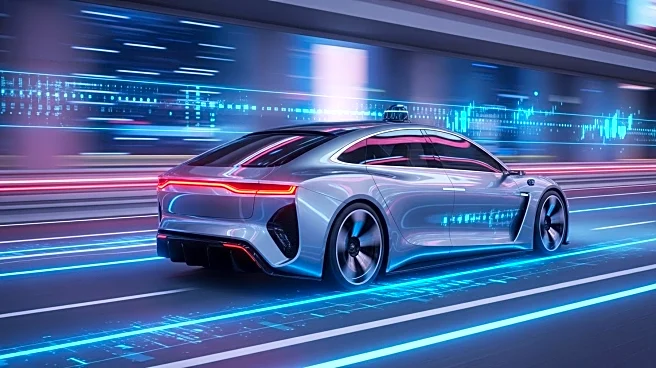What is the story about?
What's Happening?
Tesla has introduced its Full Self-Driving (Supervised) package in Australia and New Zealand, marking the first deployment of this technology in right-hand-drive markets. The system, which allows Tesla vehicles to operate with minimal driver input, is classified as a Level 2 driver assistance system, requiring constant driver attention. This rollout follows significant software adjustments to accommodate local driving conditions, such as Melbourne's hook turns and Australian-specific road signs. The phased rollout begins with Model 3 and Model Y vehicles equipped with Hardware 4 cameras, offering a 30-day free trial for new buyers. Despite the name, Tesla emphasizes that the technology is not fully autonomous, and drivers remain responsible for vehicle operation.
Why It's Important?
The introduction of Tesla's Full Self-Driving package in right-hand-drive markets represents a significant expansion of its autonomous driving capabilities. This move could enhance Tesla's market presence in Australia and New Zealand, potentially increasing sales and customer engagement. However, the rollout occurs amid ongoing legal challenges in the U.S., where Tesla faces lawsuits related to its Autopilot system. A recent court ruling found Tesla partly liable for a fatal crash involving Autopilot, which the company is appealing. These legal issues highlight the complexities and risks associated with autonomous driving technology, impacting Tesla's reputation and regulatory scrutiny.
What's Next?
Tesla plans to expand access to its Full Self-Driving package across more vehicles in Australia and New Zealand through a phased approach. The company is also expected to introduce a monthly subscription option for the package, although pricing details remain unconfirmed. As Tesla navigates legal challenges in the U.S., the company may need to adjust its marketing and operational strategies to address safety concerns and regulatory requirements. The outcome of Tesla's appeal in the U.S. could influence future developments in its autonomous driving technology and its acceptance in international markets.
Beyond the Headlines
The rollout of Tesla's Full Self-Driving package in new markets raises ethical and legal questions about the definition and marketing of autonomous driving technologies. Tesla's emphasis on driver responsibility, despite the system's capabilities, reflects ongoing debates about liability and safety in the automotive industry. The company's cautious messaging and legal challenges underscore the need for clear regulatory frameworks to govern the use of such technologies, ensuring consumer safety and trust.
















